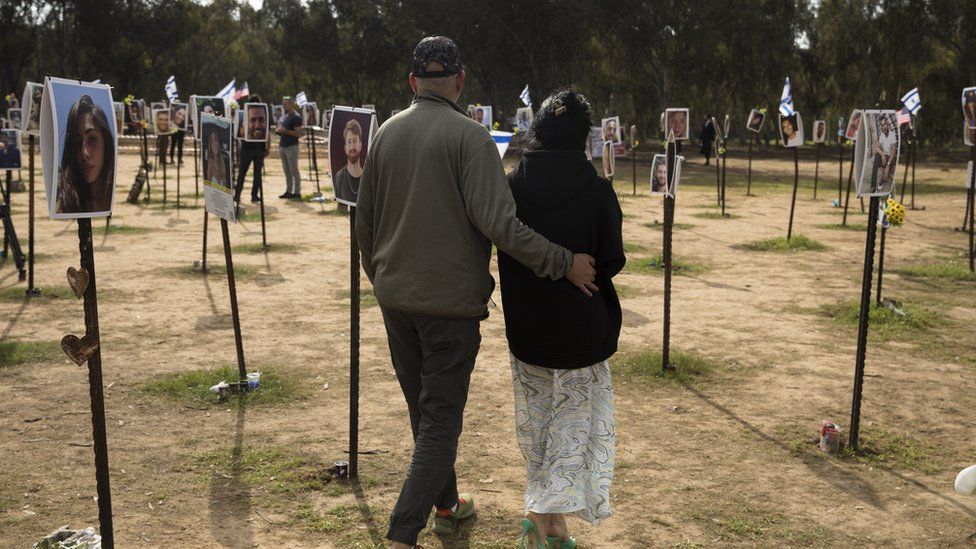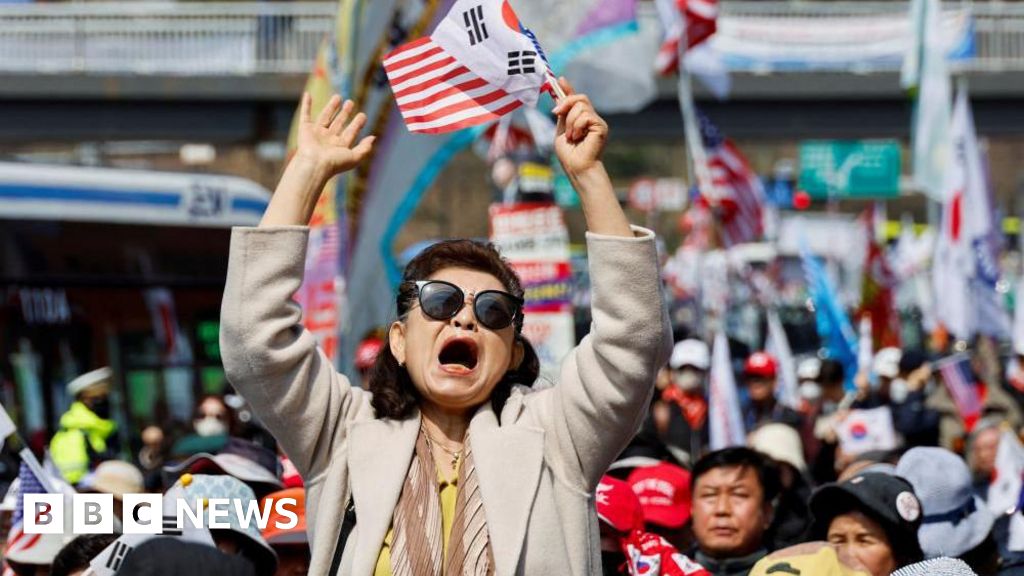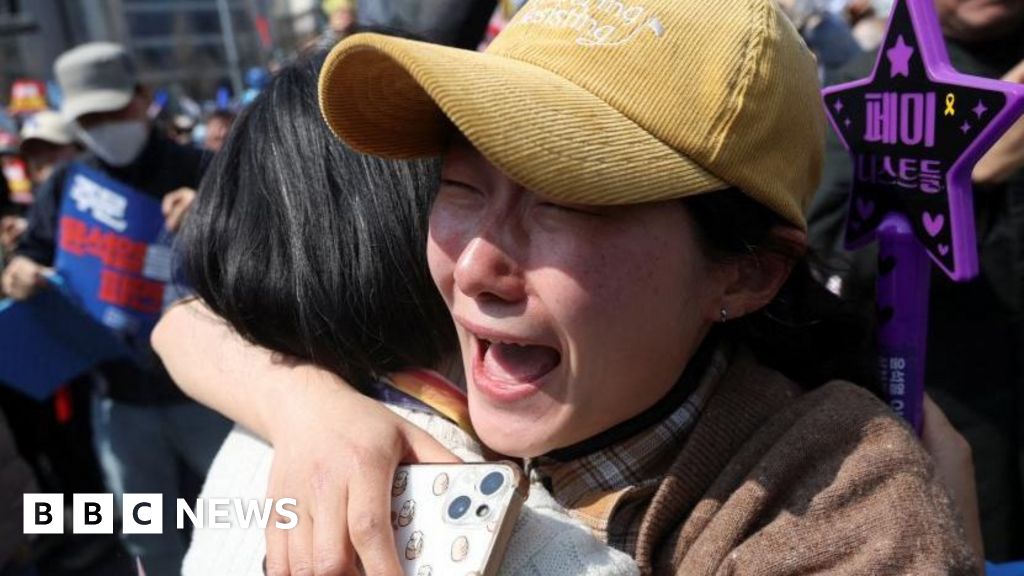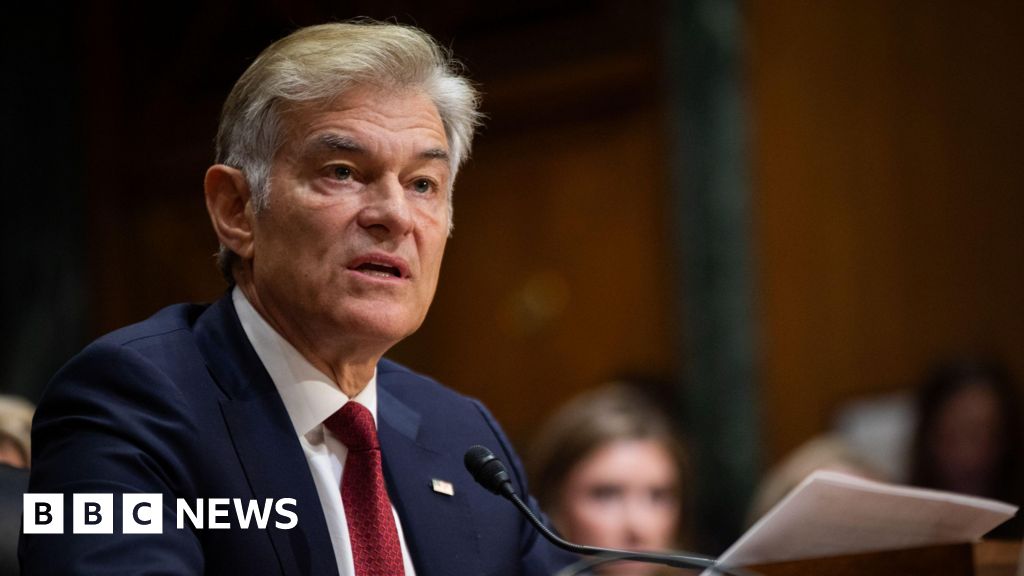ARTICLE AD BOX

Survivors and relatives of those killed or kidnapped at the Nova festival paid emotional visits to the memorial in Re'im, in southern Israel
By Wyre Davies
BBC News, Re'im, Israel
Exactly three months ago this weekend, Eynav Levy and her husband Or were in a hurry. It was just after six o'clock in the morning and they were late in arriving at the Nova Music Festival, in the woods near Kibbutz Re'im, because they'd wanted to spend another night with their two-year old son Almog.
Within a matter of hours, Eynav had been shot dead by Hamas gunmen and Or was abducted and taken to Gaza.
Now Or's brother, Michael, has come back to the Nova site for the first time. He says it's the hardest thing he's ever done apart from explaining to his little nephew Almog that "his mother won't come back and his father is missing" and that they are looking for him.
"I feel we feel are living someone else's life. It's like a horror movie," he tells me. "It doesn't feel like our lives. I haven't slept for more than three hours straight in 91 days. I barely eat, I just do this."
For him, life was turned upside down on 7 October.
"There was the old Michael prior to 7 October, and there's the new Michael. Now. Those are two different people," he adds.
He wants Israel's government to prioritise the release of hostages.
"We want them back now. That's it. They need to bring them back as soon as possible. That was the request on day one, and that's the request on day 91. And it's not going to change until they are back."
It's thought that more than 130 hostages still remain in Gaza, although some are known to have died.
More than 100 hostages, mainly women and children, were released by Hamas in November before a temporary halt in fighting broke down.
Among them is 18-year-old Itay Regev, who was freed days after his wounded sister Maya was released. Itay spoke briefly, about what he'd gone through, at today's memorial event at the Nova site.
Image source, Getty Images
Image caption,Itay Regev was taken hostage at the Nova music festival and released after almost two months
"It was important for me to be here and to speak out," said Itay, still visibly traumatised by his ordeal.
"I was in captivity for 54 days and every day was like forever. The conditions are very, very hard to survive. The hostages cannot remain for one more second. They all have to return home now!"
The world's attention is still very much focused on the ongoing war in Gaza where more than 22,000 people have been killed in Israeli bombings, many of them women and children.
But Israel doesn't want the world to forget what happened across the south on 7 October.
More than 360 people were killed at Nova alone - when armed Hamas fighters crossed over the border, just two kilometres to the west. The young partygoers stood no chance, the desert scrub offered very little cover in which to hide and their exit routes were blocked by heavily armed Hamas gunmen.
There's very little left at the Nova Site now but that doesn't mean what happened here has been erased from memory.
An installation in Tel Aviv has been set up to remember the victims of the attack
At a huge exhibition centre in the city of Tel Aviv, Tal Shimoni - a survivor of the Nova Festival atrocity - shows me around an incredible installation, an almost complete reproduction of the Nova site.
Thousands of items including the main canopy, tents, sleeping bags, art exhibits and personal possessions have been brought here from the festival venue.
There are many powerful, emotive items including several yellow, portable toilets in which revellers tried to hide but which were riddled with bullets by Hamas gunmen. Of the 30 people who tried to hide inside them, only three survived.
Nearby, the main bar from the site has been rebuilt, complete with half-empty bottles, ashtrays and a bullet-damaged cash till.
There are also six chest-sized drinks refrigerators. The first rescuers on the scene at Nova found many bodies in and around these fridges - more places where young people had desperately tried to hide from the gunfire.
It's a moving experience to walk through the site and imagine being at the Nova festival, perhaps in the early hours before dawn when all hell descended. Music plays out from the same speaker system they had at the festival.
Tal Shimoni says staging the exhibition is the best way to honour her friend killed in the attack
It's also painful for Tal to show people around - while she survived physically unscathed, she's emotionally damaged and saw many people killed.
But, for her, staging this exhibition is the best way to honour their memories.
"My friends would want us to go out and celebrate their lives …. We will dance again," she says.
In Israel, politicians, diplomats and military leaders are beginning to talk about 'the day after' - what will happen when the war in Gaza eventually ends.
That is a step too far for the families of the hostages and something they cannot yet contemplate.
Image source, Getty Images
Image caption,Rudy Glazer, whose brother Ranani was killed on October 7, hugs a photo of his brother at the site of the Nova festival
The only thing left at Nova now are portraits and photographs of hundreds of partygoers who were murdered here, and of the dozens of hostages taken from here to Gaza, mounted on stakes in the desert soil.
For Michael Levy, the only thing that matters now is to secure the release of the hostages.
"I have one goal, my one mission in life and it is to bring them back."

 1 year ago
120
1 year ago
120








 English (US) ·
English (US) ·